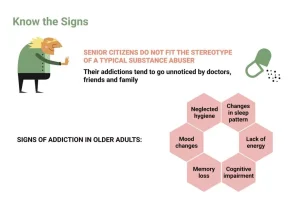
Alcohol is arguably among the most dangerous substances, not only due to its significant health risks but also because of its widespread availability. If your treatment plan includes medication, your psychiatrist will prescribe and manage it. With Talkiatry, you can see a psychiatrist from the comfort of your home and you can schedule your first appointment in a matter of days. To get started and learn about your treatment options, take our free online assessment, to see if Talkiatry is right for you and get matched with a psychiatrist. The two often create a cycle that’s hard to break, whereby the onset of one is a trigger for the other.

Alcohol’s Effects
Individuals who suffer from Panic Disorder are prone to recurring, severe panic attacks. They are so frequent that people with Panic Disorder are often anticipating the next one. These attacks can mean sweating, pounding heart, shaking, choking, shortness of breath, or a sense of impending doom. Generalized Anxiety Disorder is a status defined by a constant level of stress in day-to-day life, even if the person is just staying home.
A primer on anxiety disorders

As the initial calm feeling fades you can feel anxiety as the effects of the alcohol wear off. Discuss these concerns with your doctor first to see if alcohol is safe for you. Alcohol-induced anxiety can last for several hours, or even for an entire day after drinking.
Get advice that’s rooted in medical expertise:

When these symptoms become overwhelming, the person might have an alcoholic drink to try to calm down. They might also consume alcohol at the gathering to feel more relaxed or less inhibited around others. Panic attack symptoms can also resemble symptoms of other serious health problems, such as a heart attack, so it’s important to https://ecosoberhouse.com/ get evaluated by your primary care provider if you aren’t sure what’s causing your symptoms. Panic attacks have many variations, but symptoms usually peak within minutes. Talking therapies like CBT (cognitive behavioural therapy), can help you learn to spot unhelpful patterns of behaviour and help you to develop coping strategies.
Medications
If someone suffers from alcohol use disorder (also known as alcoholism or alcohol dependence), quitting alcohol must be a priority. Alcohol can cause several long term health issues, in addition to some of the personal challenges that come from the disorder. Please review the linked description of alcohol use disorder, and if you need help, review this link for treatments and resources. Hypersensitivity is when a person is so sensitive to changes in their body that they can’t help but notice and be affected by them. Every day most of us experience minor aches, pains, heart rhythm changes, and so on. Most people barely notice them, or pass them off as if they’re not important.
How Alcohol Affects Anxiety Disorders
How long you’ll need treatment depends on the severity of the condition and how well you respond to treatment. The efficacy of these drugs for anxiety treatment has been established firmly in well-controlled, randomized clinical trials. However, it is important to note that these studies typically exclude people with AUDs—a requisite standard practice to enhance the internal validity of efficacy studies. This exclusion means, however, that treatment providers must use clinical judgment when prescribing these medications to comorbid patients. Psychiatrists are doctors who have specialized training in diagnosing and treating complex mental health conditions through medication management. If you are experiencing symptoms of a mental health condition such as depression, anxiety, bipolar disorder, PTSD, or similar, a psychiatrist may be a good place to start.
However, one study found no effect of buspirone on either anxiety or alcohol use (Malcolm et al. 1992). Anxiety disorders also may have a particularly detrimental impact on alcohol-focused treatment for women. This has been demonstrated alcohol and panic attacks in a series of studies evaluating the intersection of gender, social anxiety disorder, and treatment modality. Early work in this area from the Project MATCH sample revealed an intriguing interaction (Thevos et al. 2000).
What the DSM-5 Says About Addiction
- If you’re worried about having a panic attack after drinking, the best strategy is to abstain.
- This insularity and particularism continue to impose significant opportunity costs in this field.
- People can usually manage all types of anxiety by using a combination of lifestyle changes, medications, and therapy rather than alcohol.
- We may be paid a fee for marketing or advertising by organizations that can assist with treating people with substance use disorders.
- Many people with panic disorder develop agoraphobia, where they experience fear and avoidance of situations where it is difficult to or to access help during a panic attack.
For example, can individuals with AUD be distinguished meaningfully based on objective stress reactivity and regulation indicators, and do subjective anxiety symptoms mark or moderate this distinction? For augmenting treatment for AUD, would targeting biological stress reactivity (e.g., hypothalamic pituitary adrenal activation) be more promising than targeting anxiety disorders? Among people who have problems with alcohol, do those with versus those without co-occurring anxiety disorder react differently to protracted abstinence and withdrawal in terms of severity and persistence of dysregulation of the stress response? Prospective studies across the distinct stages of treatment and recovery for alcohol-related disorders may shed needed light on the relationships between alcohol, anxiety, and stress reactivity and regulation. Such studies have the potential to reveal the trajectory of re-regulation of the stress response during abstinence and how it relates to anxiety symptoms and relapse risk.


Psychiatric and epidemiological studies show that having either an anxiety- or alcohol-related diagnosis elevates the prospective risk for developing the other disorder. From the psychological perspective, behavioral research demonstrates that drinking to cope with negative affect is a potent marker for current and future problems with alcohol. Neuroscientific research implicates overlapping neurobiological systems and psychological processes in promoting the rise of negative affect and alcohol misuse. The psychiatric perspective that alcohol misuse and co-occurring anxiety represent neurobiologically distinct diagnostic conditions has dominated the field for many decades. However, recent research provides increasing support for the neuroscientific perspective that these conditions share underlying, mutually exacerbating, neurobiological processes.
- Calls to our general hotline may be answered by private treatment providers.
- In addition, the attacks can’t be due to the direct effects of a substance or general medical condition.
- Like other anxiety disorders, it is not uncommon for phobias to grow out of anxiety.
- Yes, alcohol can contribute to mood disorders like depression and bipolar disorder by disrupting neurotransmitter balance and exacerbating symptoms over time.
- Nowadays, the internet can also offer tools for keeping track of drinking habits, setting goals, and providing relapse-prevention techniques.

